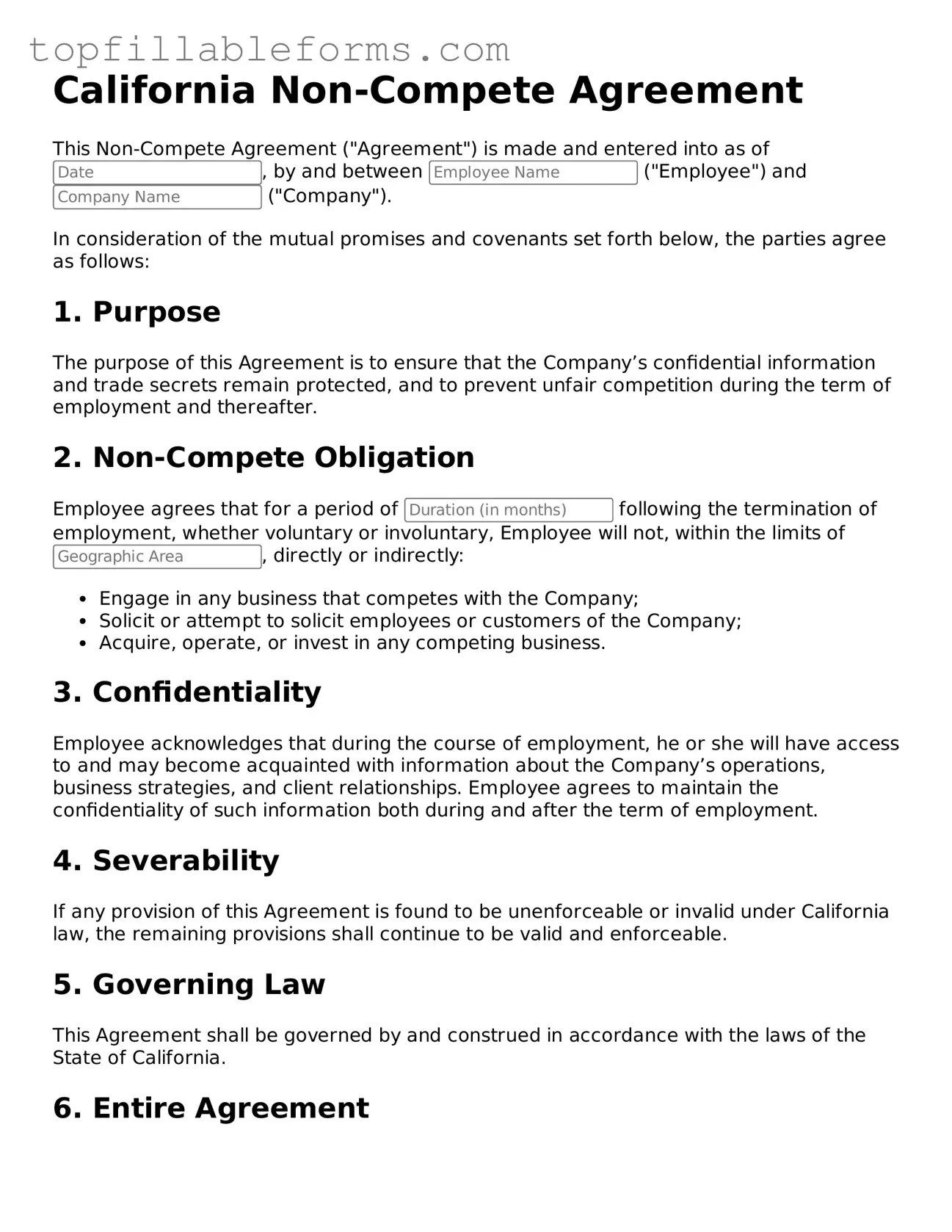Attorney-Verified Non-compete Agreement Template for California
A California Non-compete Agreement form is a legal document that restricts an employee from working for competitors or starting a similar business after leaving their current employer. These agreements aim to protect a company's trade secrets and proprietary information. However, California law significantly limits the enforceability of such agreements, making them quite different from those in many other states.
Open Non-compete Agreement Editor Here

Attorney-Verified Non-compete Agreement Template for California
Open Non-compete Agreement Editor Here
Finish the form now and be done
Finish your Non-compete Agreement online by editing, saving, and downloading fast.
Open Non-compete Agreement Editor Here
or
▼ PDF File
